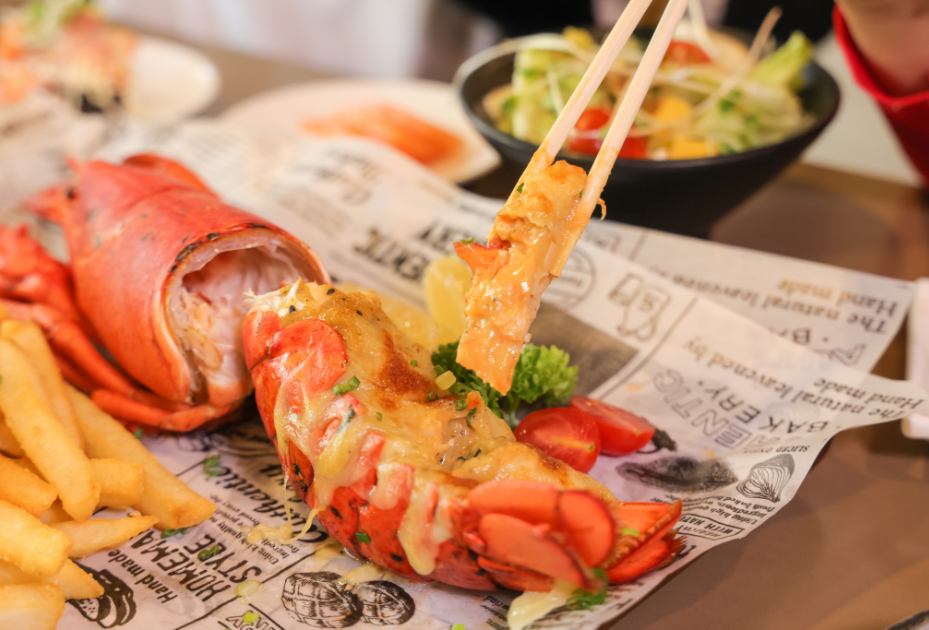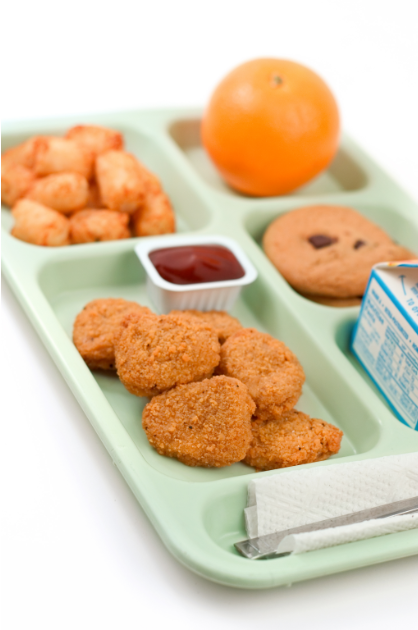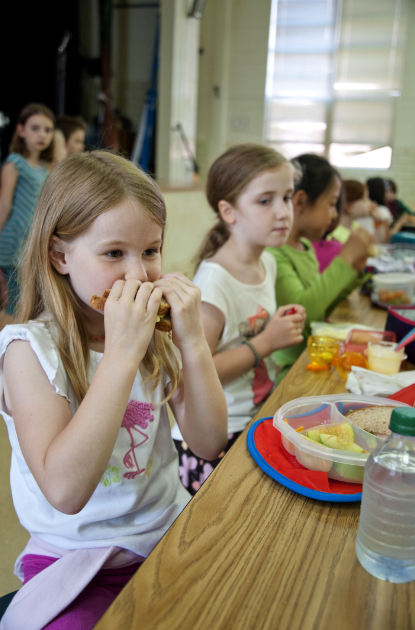The other day, I was watching CNN when a picture of San Bernardino's female terrorist, Tashfeen Malik, flashed onto the screen.
My 6-year-old daughter immediately turned to me and exclaimed, "Mom, that bad girl is a Muslim!"
My heart stopped for a second. As a mother, I've tried shielding my children from news of ISIS and American terrorists — whether they shoot innocent people at an office party or a Planned Parenthood clinic. Isn't that a natural instinct for most parents, wanting to shield your young ones from life's ugly realities as much as possible?
Image via iStock.
Except there's only so much shielding you can do. Especially when you're a Muslim.
"Mom, that bad girl is a Muslim!" my daughter said. "Look, she's wearing a scarf on her head just like you do!" I'm not only a Muslim mother who wears a headscarf. I'm also a writer and public speaker, focusing on stories of Muslims and training law enforcement on cultural sensitivity. I often appear on radio and television to talk about the effects of these media stories on the average, law-abiding Muslim American. That means my 6-year-old daughter and 9-year-old son know a little too much about how ugly this world can be.
Image via iStock.
I want my children to feel safe and loved. But what do you tell your children when the news is full of people "of your tribe" doing something horrible and evil?
I've been digging into that question, searching for suggestions and insights from experts. And while I've found a lot of good advice for post-terrorism parenting making the rounds online, not all of it addresses the specific challenges my family, and so many others, are facing.
Here are some key pieces of advice most commonly shared by experts and how I've made them work for our family:
1. "Assure children that these attacks are rare and the chances of anything ever happening to them are next to nothing."
A friend recently told me that every time her high school son passes someone in the hallway, people yell, "Bomb!" Another friend told me her 7-year-old daughter was nicknamed "ISIS" by her classmates.
Even more than terrorist attacks, my children are scared about how others will view them because they look like some of the terrorists they're seeing on the news.
Image via iStock.
While President Obama has repeatedly cautioned us not to lump all Muslims into the same box, Muslims are still regularly on the receiving end of hate speech and threats.
Which is why we need to talk to our kids — all of them — about bullying.
In a world already hurting, we all need to work together to help Muslim children understand that they are not any less loved or valued because of their faith. (It's worth pointing out that many brown-skinned people like Sikhs and Hindus are mistaken for Muslim, too.)
Teachers, principals, and school administrators should do the same by reminding their staff and students that faith-based teasing is not acceptable.
Image by nick chapman/Flickr.
2. "Talk about how the child feels rather than giving information about the who, why, what, and where."
For my family, it's impossible to escape the "who." And it's (naturally) always followed by questions about why. The day after the San Bernardino attack, my son, listening to the news in the car on the way to school, asked me, "Mommy, if those people were Muslim, why did they kill someone? Don't they know Islam means peace?" These aren't easy questions, and I don't have all the answers.
But I take this opportunity to talk to my children about Islam and its inherently peaceful teachings.
We looked through the Quran and found the verse, "Whoever kills a soul … it is as if he has killed all mankind, and whoever saves a soul, it is as if he has saved all mankind" (5:32).
I show them all the commandments about being peaceful, kind, loving, and just. That's the reaffirmation of faith I and my family need in times like these.
Image by Tarang hirani/Flickr.
3. "Shut off the television and radio and spend time with the family."
I want to be able to shut it all off. Yet I need to stay connected — not just for work, but for my sense of my family's safety. Switching off the television means not knowing what presidential candidates are saying, how Muslims are responding, what the latest advisories by Muslim civil rights groups are, and so much more.
That's why I'm trying to focus on listening to unbiased news reports instead of talk shows full of hateful rhetoric when my kids are around.
After my son casually told his sister that the word Islamic is actually a code word for evil, I stopped listening to the radio in the car when I drop my kids off at school. I find websites like Fairness and Accuracy in Reporting and some NPR programs to be more balanced than the main cable news channels.
Ultimately, that's the best way I know to protect my children from the painful words others are using against their faith, and I'm hoping other parents do the same so that we don't promote intolerance in future generations.
Image via iStock.
4. "Remind children that many people in the government and the community are working hard to keep them safe."
While that's certainly true of terrorist attacks, it's harder to make the case for Muslims right now. Adults and children are being harassed in the street, spit on in buses, and so much more. My children can see what the American Muslim community is going through, and it's almost impossible to shield them from it.
Last week, the father of my daughter's friend was escorted off a plane for looking suspicious and then detained by the police for hours. His face on the news was recognizable and she cried, "Mom, why did the police catch Amna's dad?" It's so heartbreaking and frustrating to watch my children grow wary and afraid.
I told her that loving other people, taking care of them, and making sure we help them when they're in need is what makes a Muslim.
That's why it's so important to get involved in showcasing a positive side of Islam and Muslims.
Whether you're a Muslim or not, getting to know your Muslim neighbors, visiting Islamic organizations, and learning about the positive contributions Muslims make in their communities can change the narrative and counter stereotypes. Virtually every city with a Muslim presence has a charitable or social service arm.
This week, my kids and I are buying holiday gifts as part of a mosque project to give to sick children in our local cancer hospital. You can also contact your nearest charity or two of the largest national charitable organizations — Islamic Relief USA and ICNA Relief — for projects to help with.
Image via iStock.
At the end of the day, keeping communication open is key. Sometimes only an honest heart-to-heart talk with your child will do.
When my daughter was so upset about seeing a terrorist wearing the same head covering as her mother, I told her to remember there are bad people in the world, no matter their religion.
I told her that loving other people, taking care of them, and making sure we help them when they're in need is what makes a Muslim.
I told her we are in this world to be kind and good.
I coaxed her into a better mood by telling her stories of the Prophet Muhammad who gave up everything he had for others. I'm an author after all, and I know the power of storytelling.
My daughter was silent for a long time, which means she was thinking about what I said.



 Student smiling in a classroom, working on a laptop.
Student smiling in a classroom, working on a laptop. Students focused and ready to learn in the classroom.
Students focused and ready to learn in the classroom.
 A woman telling you to be quiet.via
A woman telling you to be quiet.via  A woman telling you to be quiet.via
A woman telling you to be quiet.via 
 Fish find shelter for spawning in the nooks and crannies of wood.
Fish find shelter for spawning in the nooks and crannies of wood.  Many of these streams are now unreachable by road, which is why helicopters are used.
Many of these streams are now unreachable by road, which is why helicopters are used. Tribal leaders gathered by the Little Naches River for a ceremony and prayer.
Tribal leaders gathered by the Little Naches River for a ceremony and prayer.
 A man standing up inside a plane
A man standing up inside a plane A hospice nurse with her female patient.
A hospice nurse with her female patient. 
 Can't quite imagine this on the average American school lunch tray.
Can't quite imagine this on the average American school lunch tray. A typical American school lunch.
A typical American school lunch. Kids eating lunch.
Kids eating lunch.